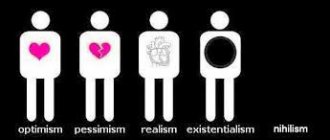There is no such thing as excess weight, there is only excess food, nutrition experts believe. Of course, they do not mean cases where excess weight is associated with health problems or a sudden change in lifestyle - for example, the work was dynamic, involving movement, but became sedentary. But in many cases, there is a large grain of truth in this statement, since fat on the sides and abdomen is deposited precisely when overeating or using obviously harmful products. At the same time, for many, all excess food is quite effectively burned and processed into the fuel necessary for the body, without settling on the sides and hips. Today there is a theory that proves that weight gets stuck and does not go away due to psychological factors. Why this happens and how to identify the true cause of extra pounds and cope with it, psychologist, women's coach, author of her own method for working through childhood trauma and false beliefs in adults, Irina Maslova-Semenova ,
Causes of obesity
Obesity is considered one of the diseases of civilization. High-calorie foods became available to people, but at the same time physical activity decreased. Working while sitting in the office, traveling home while sitting in public transport, and often relaxing in the evening while sitting on the sofa reduce the need for calories. But no one reduces consumption; the calorie content of food increases due to a large amount of simple carbohydrates - sweets, flour, and animal fats.
Research shows that there are many causes of obesity:
- poor nutrition is not only a large amount of calories, but also non-compliance with food intake, fasting in the first half of the day and a large amount of food in the evening before bed;
- lack of sleep - going to bed after 12 o'clock at night disrupts the production of the hormone melatonin, ghrelin and leptin, which regulate appetite. A person who gets little or no sleep at night is more likely to become obese;
- medications - taking hormones, antidepressants, can provoke increased appetite or disturbances in lipid and carbohydrate metabolism;
- genetic predisposition – it has been proven that children with obese parents are prone to the appearance of excess adipose tissue;
- endocrine diseases - hypothyroidism, type 2 diabetes mellitus, Cushing's disease are often accompanied by obesity; in men, pathological weight gain is observed with testosterone deficiency, and in women with a lack of estrogen, polycystic ovary syndrome;
- pathology of the central nervous system - brain injuries, some types of tumors can provoke eating disorders. Some mental disorders are also accompanied by overeating and excess weight.
Women tend to gain weight at certain times in their lives. Sometimes premenstrual syndrome is accompanied by the development of edema and weight gain. This is due to a lack of the hormone progesterone. Many people feel that on the eve of their period and in the first days they begin to eat more, which causes serious fluctuations in body weight.
The risk of gaining excess weight increases during pregnancy. Hormonal changes lead to active fat storage. On average, body weight increases by 10-15 kg during pregnancy, but some women gain 20-25 kg. Pregnant women with a thin build are especially prone to this.
During menopause, the risk of obesity increases again. The lack of estrogen affects the metabolism in adipose tissue and leads to a gradual gain of body weight, which is very difficult to get rid of.
What should be the correct diet?
As we have already noted, the diet should be varied. The danger of mono-diets
lies precisely in their uniformity. A person receives only those vitamins and microelements that are contained in the product chosen as the main one for a mono-diet, and this is often not enough. A proper diet must include fruits and vegetables, preferably fresh ones, especially in season.
First of all, you need to control the amount of fat you consume, but you should not exclude them from your diet. Fats are also necessary in the body, as they take part in the construction of cell membranes, hormonal balance and other important processes. Saturated fats are the most dangerous
and
trans fats
. Most of them are found in sauces, as well as artificially low-fat products, such as yoghurt, milk or cottage cheese. Also suppliers of harmful fats are margarine, and along with it confectionery, sweets and fast food products.
If we talk about the method of cooking, then preference should be given to steamed
or
boiled
, but it is better to minimize the consumption of fried food, since animal fats are also often used for frying. If you still decide to cook a fried dish, then choose vegetable oils for frying.
Sugar has a strong influence on a person’s weight, and, accordingly, on the body mass index.
. If you take a close look at your daily diet, you will realize that you consume large amounts of natural sugar, which is found not only in fruits, but also in some vegetables. But if natural sugar is good for the body, then artificial sweeteners will quickly add extra pounds to you, so if you want “something sweet” in the evenings, then let it be an apple, not an apple pie.
Psychological causes of excess weight
In medicine, psychosomatics is a separate area that is actively developing. Psychosomatic causes have been established for many diseases, obesity being one of them. It is believed that the development of pathology is based on the body’s reaction to emotional experience. first it causes functional changes, which are easily corrected when the problem is eliminated, and then pathological disturbances in work.
Psychologists explain that an unresolved internal conflict, a situation that is emotionally unpleasant for a person, can go into the subconscious and remain unresolved. But it remains at an unconscious level and leads to eating disorders or problems with other organs.
Psychosomatics of excess weight in women may be associated with the following factors:
- stress eating is conditional; if in childhood a crying child was immediately offered something sweet, this action was reinforced in the subconscious. An adult woman also, when experiencing negative emotions, tries to eat something tasty to cheer up. Most often these are sweets, fast food, alcohol, which also leads to weight gain due to its high calorie content;
- low self-esteem - psychologists believe that in women who lack self-confidence, excess food consumption is activated, which leads to excess weight. This way they become more noticeable to others, but will continue to live with low self-esteem;
- the desire to become ugly - women who were raped at an early age psychologically increase their appetite. So subconsciously they try to disfigure their body in order to avoid repetition of unpleasant events;
- protection from the outside world - consuming large amounts of food and building up a layer of fat allows you to hide and build a tangible barrier. This is observed both in shy people and in victims of physical or mental violence;
- attention deficit in childhood or in marriage - psychological reasons are related to the desire to become more noticeable to parents who do not devote enough time to the girl. Married women sometimes begin to gain weight when their spouse loses interest in them;
- reluctance to please the opposite sex - the root of the problem also lies in childhood, when the girl was imposed false stereotypes of behavior, limited communication with boys, or was taught that beauty and sexuality are bad. Subconsciously, the girl begins to change her body, hiding it under a layer of fat.
Psychosomatics can increase metabolic disorders in the body and lead to the development of obesity, which is resistant to diets and requires special comprehensive treatment.
When should you see a doctor?
How to lose weight if extra pounds are associated with emotions? To begin with, it is important to understand whether a person’s obesity is associated with hormonal or other diseases. Therefore, first of all, you will need to contact a therapist, endocrinologist or anti-aging medicine doctor.
The help of a specialist is also necessary if you have a habit of stress eating and have already gained a fair amount of kilograms as a result. And also if you have persistent signs of depression due to weight gain.
What does the distribution of body fat indicate?
Psychologists believe that emotional problems can be judged by the distribution of fat in a woman’s body. A double chin appears due to understatement, fear of expressing one’s thoughts out loud. Fat deposits in the shoulder and back area are associated with the burden of the past, which a woman continues to carry, or with a deep sense of guilt. Fat folds on the back in the lumbar region are an indicator of feelings of guilt and shame for one’s misdeeds or mistakes. In general, the distribution of fat in the upper body is a reflection of increased responsibility for others, the desire to help everyone, often to the detriment of one’s own interests.
Psychosomatics explains the distribution of fat deposits in the lower body as follows:
- buttocks – lack of fulfillment in sexual life, excessive stubbornness, egocentrism;
- belly - excessive concern, a large number of unrealized ideas that a woman carries within herself, some psychologists associate it with problems between mother and child;
- hips - childhood fears and grievances, infantilism or a sense of shame;
- riding breeches are an area of meaningless accumulation, when a woman maintains unnecessary relationships, goes to a job she doesn’t like, and saves unpleasant emotions.
Losing weight in women with psychological causes of obesity is possible only after careful work with a psychologist and psychotherapist, who will help find the root of the problems and understand themselves.
How to solve the psychological problem of excess weight
It is necessary to treat obesity, which is psychosomatic, together with a psychologist. But first you need to make sure that the problem has a psychological cause and is not associated with endocrine disorders or other diseases. To do this, an examination is carried out by a therapist and an endocrinologist.
Sometimes the impetus for successful weight loss is the conclusion of a diagnostician, which indicates serious wear and tear on internal organs. Often, grade 2-3 obesity is accompanied by fatty hepatosis (obesity and impaired liver function), an increased risk of atherosclerosis, impaired glucose tolerance and a tendency to surges in blood pressure at a young age.
To treat psychosomatics, it is important to find an experienced psychologist who will help you find the causes of overeating and teach you how to control your desires. This process takes a lot of time and consists of several stages, during which the psychologist will suggest performing certain exercises:
- The identification of subpersonalities, one of which seeks to overeat, and the second – to control. Psychology usually recommends giving them names and setting up a dialogue, during which you can determine the reasons why a woman overeats, how one side controls this process, and the other interferes.
- Search for motivation, or the benefits of excess weight. A woman may blame obesity for the misfortunes that happen to her. But subconsciously she often justifies herself, looking for benefits in this situation. Thanks to this exercise, she can identify her needs, which are satisfied with the help of excess weight, and find another way to satisfy them.
- At the third stage, the psychologist suggests answering questions about excess weight, dividing the answers into columns with pros and cons. Once she is convinced that the disadvantages of obesity are greater, a woman can set herself up for drastic weight loss.
Sometimes emotional problems or experiences are so significant that they require medication correction. The doctor may prescribe herbal sedatives that will not cause harm and will help maintain mental balance. These can be valerian tablets, motherwort tincture, Novopassit or Persen. These medications do not disrupt carbohydrate metabolism, unlike antidepressants.
In addition to finding the reason for eating high-calorie foods, with the help of psychology you can try to give it up if you build the right motivation. Psychological techniques work well when the same portion of food is crushed into small pieces. They visually look more voluminous than one large piece of meat or other dish. It helps to replace standard plates for meals with small ones that visually increase the amount of food.
For psychosomatic causes of excess weight, positive emotions are needed that will displace unpleasant experiences and help overcome stress. For reinforcement you can use:
- creativity - drawing, singing, playing musical instruments, dancing - any areas that will help get rid of negativity or switch to good emotions;
- sports – if obesity has not reached a severe stage, when physical activity worsens your well-being, you can remember your previous hobbies or find new ones. These can be team sports, martial arts or any other types of activity;
- hobby - helps you not to eat high-calorie foods, but to take your mind off troubles and switch your attention to activities that bring pleasure.
The results of losing weight for psychosomatic reasons need to be recorded so that the woman sees changes for the better. But weighing should not be daily, because... body weight may fluctuate. It’s better to step on the scale once a week to confirm positive changes.
Who is most prone to psychological overeating?
According to a Swiss study, certain personality traits influence the tendency to overeat, including emotional overeating.
We are talking about the following categories:
1. Sensitive people. Perhaps, they are more likely than others to eat away stress from various circumstances.
2. Extroverts. It would seem that introverts should eat more. In fact, it is those who like to communicate who consume more food than necessary - for company, in public places.
3. Neurotics. They often become victims of emotional eating due to their instability. In addition, they often prefer sweet and salty dishes.
As you can see, you can gain weight due to psychological reasons at any age, regardless of gender.
Additional measures for weight loss
It is impossible to lose weight only with the help of psychology; it is necessary to reduce the caloric content of food and increase physical activity. To do this, a nutritionist or endocrinologist prepares a special diet in which there will be a calorie deficit of 10-20% of the daily requirement. The following foods are excluded from the diet:
- baked goods made from white flours, black bread, which enhances fermentation in the intestines;
- sweets in any form, it can be replaced with dried fruits or fresh fruits;
- fatty meats;
- any foods that stimulate appetite - spicy, smoked, carbonated and alcoholic drinks.
Be sure to normalize the drinking regime; the female body requires at least 1.5 liters of water, and in hot weather, with active physical activity, this amount can increase to 2-2.5 liters.
To lose weight, you need to reduce the absorption of incoming fats. Therefore, for women with critical forms of obesity, the doctor may prescribe special medications for weight loss. The effect has been proven in the following drugs:
- fiber in various forms - increases the volume of intestinal contents, adsorbs some of the lipids and does not allow them to be absorbed, creates conditions for the proliferation of normal intestinal microflora, which synthesizes vitamins B and K;
- Orlistat - inhibits the activity of lipases - enzymes that are involved in the breakdown of fats coming from food. Therefore, lipids come out naturally and are absorbed, which accelerates weight loss.
They use various dietary supplements that help replenish vitamin deficiencies and improve digestive function.
Physical activity with severe obesity is not always possible due to a large belly and voluminous hips, which interfere with movement. Often women suffer from shortness of breath due to excess weight. Therefore, they begin to increase physical activity with exercise therapy, and after positive dynamics appear and increased tolerance to stress, they switch to more active sports.
Let's summarize:
- The secret to losing weight lies in the symbiosis of proper nutrition and physical activity.
- A proper nutrition plan is developed individually, based on a person’s individual characteristics: gender, age, presence of chronic diseases, excess weight, etc.
- Nutrition should be balanced. It must contain fats, proteins, carbohydrates and beneficial microelements.
- Before choosing a diet, make sure that you really need it. To do this, calculate your body mass index and check whether your indicators are beyond the upper limit of normal.
- A proper diet should not only help you lose excess weight, but also not harm your health.










